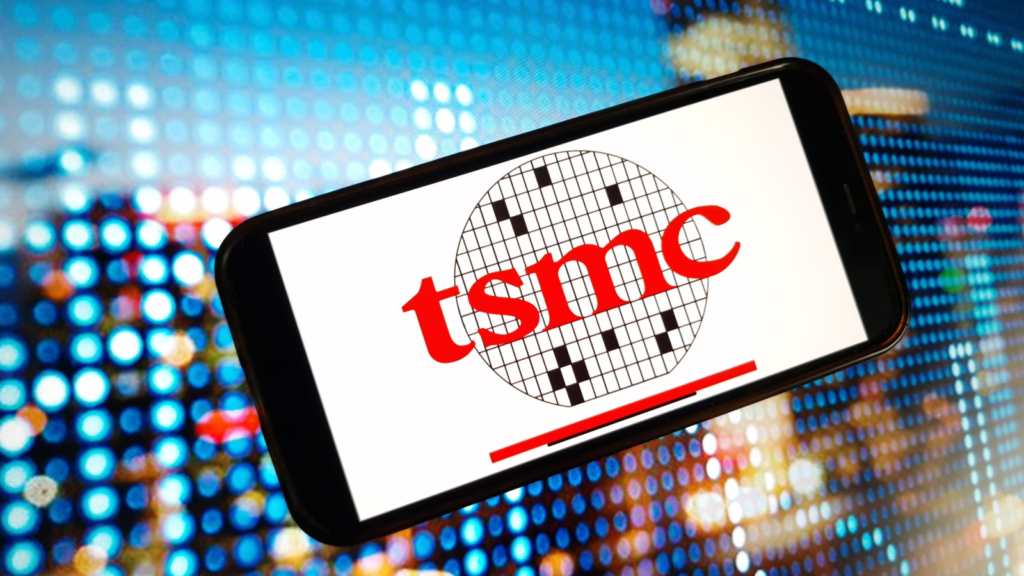
Taiwan Semiconductor (NYSE:TSM) is a chipmaking juggernaut. All companies, including Taiwan Semiconductor, face obstacles and problems. The rest of 2024 will be uncertain for Taiwan Semiconductor stock, so it’s wise to wait for a better price before buying shares.
I’ll give Taiwan Semiconductor a lot of credit for demonstrating resilience after Taiwan’s most powerful earthquake in 25 years. It will take time for the company to recover from this catastrophic event, though.
Furthermore, as we will discuss in a moment, Taiwan Semiconductor has other issues to deal with. So, let’s get into the details now, and then determine an appropriate buy price for Taiwan Semiconductor stock.
Taiwan Semiconductor Goes Head-to-Head With Intel
Unlike some other chipmakers, Taiwan Semiconductor has a foundry business and actually manufactures its own processors. Moreover, Taiwan Semiconductor is set to receive funding from the U.S. government.
However, the same things apply to be Intel (NASDAQ:INTC). So, Taiwan Semiconductor isn’t unique in these respects.
Indeed, it might be suggested that the two companies will eat into each other’s global market share during the coming years.
Taiwan Semiconductor will have to fend off fierce competition from Intel, as both companies seek to make the fastest chips in the world.
Intel is busy working on its 14A chip, while Taiwan Semiconductor expects its rival A16 chips to reach the production stage in 2026’s second half.
The commercialization of this technology is years away. Consequently, trying to predict the winner of the chipmaker horse race is practically impossible.
China’s Issues Could Cause Problems
Taiwan Semiconductor is headquartered in Taiwan, of course. However, like many other chipmakers, Taiwan Semiconductor conducts business in China and will be impacted by events that take place there.
As Fortune points out, Taiwan Semiconductor manufactures “less-advanced legacy chips in mainland China.” The problem is, there’s a technology war happening between the U.S. and China.
The U.S. government has export controls in place against China. Plus, China’s government isn’t always known for being business-friendly.
It’s gotten to the point where Taiwan-based King Yuan Electronics Co. (KYEC), which specializes in semiconductor testing and packaging, is exiting the mainland-China market.
Per Fortune, KYEC cited “the impact of geopolitics on the semiconductor industry and U.S. restrictions on China’s semiconductor industry.”
This news might not immediately affect Taiwan Semiconductor in particular. Yet, it’s a sign that the company will have to deal with challenges in China for the foreseeable future.
Taiwan Semiconductor Stock: Here’s the Price to Watch For
Even a gigantic company like Taiwan Semiconductor has its fair share of challenges. Therefore, it’s not wise to chase get-rich-quick gains. Instead, stay informed about Taiwan Semiconductor and take into account both the positive and negative news items.
An important way to de-risk your investment in Taiwan Semiconductor is to target a lower share price.
Like I’ve said before, the best strategy is to wait for Taiwan Semiconductor stock to decline to its early-February price of $115 before buying it.
Patience will pay off big-time, so wait for the stock to hit $115 and then start a buy-and-hold position.
On the date of publication, David Moadel did not have (either directly or indirectly) any positions in the securities mentioned in this article. The opinions expressed in this article are those of the writer, subject to the InvestorPlace.com Publishing Guidelines.





